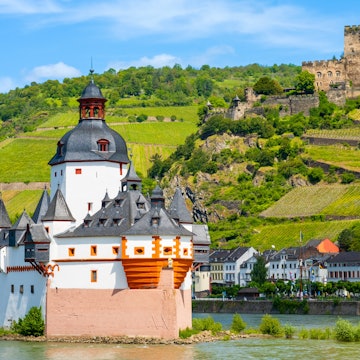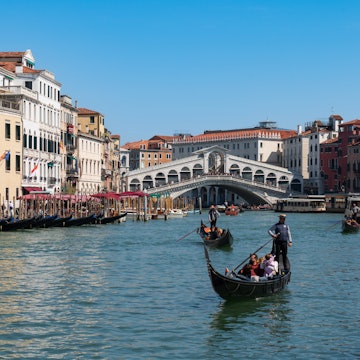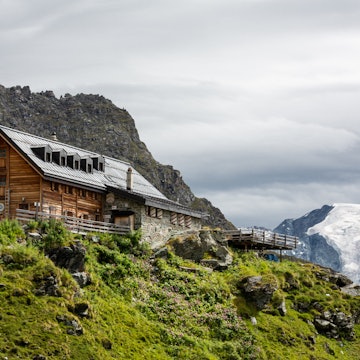

Bachsee near Grindelwald. kasakphoto/Shutterstock
Little did I know when I first moved to Switzerland that I’d still be here a decade on. But with its supermodel looks, fine weather, easy-peasy public transportation, multilingual mindset and penchant for cheese and wine, this country is an easy place to get comfortable – even if things are a bit on the pricey side.
Get a taste of Swiss life for yourself with top tips that everyone should keep in mind before visiting Switzerland.

Practical advice
1. Prioritize what you want to see
In the few hours it takes to drive the breadth of Switzerland, this small country packs in a lot of sights, from culture-rich cities like Geneva and Zürich to little mountain villages, epic alpine landscapes and vast lakes. Thanks to the smooth transportation network, it’s all very accessible, allowing you to explore a city center in the morning, ride across a lake at lunchtime and be up a mountain come afternoon. So whether you’re coming for a weekend-long city break or taking your time to explore by train, car or bicycle, Switzerland suits the lot.
2. Pack for all weather
Generally speaking, Switzerland is seasonally predictable, with hot summers and cold winters, but there are always exceptions to keep you on your toes. Violent storms on summer days can catch you off guard, while temperatures can plunge in the mountains at night even after a very hot day. Snow isn’t uncommon at altitude in August. Prepare for all eventualities, and always pack a little more clothing than you think you’ll need if you’re exploring alpine areas. The federal weather service is a go-to for accurate local forecasts.

3. Download the SBB app and look for Supersaver tickets
The easiest way to buy train tickets is on the app from SBB CFF FFS, Switzerland’s rail service. Input your credit card details the first time you use it, then it’s just a couple of taps to buy any ticket. If you purchase on the day of travel, journeys are the same price throughout the day (no early-bird or off-peak deals), but if you can plan in advance, search for Supersaver tickets that can shave a few Swiss francs off the price. Multiday transport passes and day passes can also save you money.
4. Book hotels and mountain cabins well in advance
Switzerland’s a popular destination, so accommodations book up in advance. Always plan ahead, especially if you’re on a budget. That doesn’t just apply to cities and famous resort towns – even a dorm bed in a rustic cabin high in the mountains can be highly sought after in peak season. Don’t forget to pack a sheet sleeping bag, which is obligatory in most high-mountain cabins.
5. Be prepared to splash the cash
Everyone knows Switzerland is pricey. There are ways to travel frugally here, but it’s prudent to accept that certain things are unavoidably expensive. Even though it might hurt to shell out for food, hotels and transportation, it'll be worth it when you’re standing on top of a mountain taking photographs so achingly beautiful that your friends will later say you Photoshopped them – trust me.

Etiquette in Switzerland
6. Remember what country you’re in
When discussing Switzerland’s language regions with a local, never refer to, for example, the "French" area – always say French-speaking or Francophone. This is a proudly independent, neutral country, and any suggestion that it is part of another nation does not go down well.
7. Don’t assume everyone is multilingual
When it comes to communication, Switzerland isn’t straightforward. Though the country has a distinct national identity, its four official languages – French, Swiss German, Italian and Romansh – divide it into discrete linguistic areas. Though there’s some crossover in towns such as Biel/Bienne and Fribourg that straddle the language border, in rural areas the so-called Röstigraben can be so stark that you might encounter a Francophone village on one side of the border and a Swiss German–speaking one 5km down the road. And while many Swiss are multilingual, don’t assume that everyone speaks each other’s language – many people are more likely to speak English than another Swiss national language.
8. Sprechen Sie Deutsch? Swiss German is not the same
German speakers may come to Switzerland thinking they’ll have no problems understanding the Swiss, but that may not be so. German – or Hochdeutsch (high German) – is quite different than Swiss German, or Schweizerdeutsch, so even native German speakers might be left scratching their heads at times. Not only that but Swiss German isn’t a single language – it encompasses various dialects across the region. However, don’t despair if you greet someone with Grüezi (hello) only to get Grüessech in response – people will appreciate the effort, even if you get it wrong.

9. Call places by their local names
Likewise, you’ll make friends more quickly if you use the proper names, not Anglicized versions. Say Lake Geneva to a Lausanne resident and you’ll get a stern look and a pointed reply about Lac Léman. Likewise, Lake Lucerne is actually Vierwaldstättersee, and Lake Constance is Bodensee.
10. Tip if you want to, but it’s not obligatory
There isn’t a big tipping culture in Switzerland. Leaving 10% on top of the meal bill, if you’ve enjoyed a meal, will be very much appreciated, but it’s not obligatory – and certainly is not if you’ve had only drinks at a bar. Prices are high enough, and salaries in the service industry are decent.

Eating and drinking in Switzerland
11. Drink wine with a fondue
Switzerland’s cheesiest dish comes with numerous etiquette rules – don’t double-dip, don’t drop your bread in the pot, never leave the crusty bit at the bottom (la religieuese) uneaten – but the most important rule is to only drink wine with fondue, and preferably a dry Swiss white like Chasselas, the country’s most widespread homegrown grape. It supposedly helps with digestion (the same goes for schnapps). Apparently drinking water would cause the cheese to solidify in your stomach. Or perhaps (evidently, if you ask me) it’s simply that the Swiss love drinking wine and use any excuse to do so.
12. Don’t buy bottled water – the tap water is just as good
One of the greatest rip-offs in Switzerland must be bottled water. It’s expensive, and buying it is wholly unnecessary since the tap water is just as tasty and abundantly available. Carry a reusable bottle and fill up wherever you can, including from the many fountains you’ll see in cities, towns and mountain villages all over the country. Unless otherwise stated, it’s drinkable and delicious. Despite this, don’t be surprised if restaurants grumble when you order tap water – apart from in the canton of Ticino, they aren’t legally obliged to provide it for free, and some will either charge you or refuse to serve it if you don’t also order another drink.

Safety in Switzerland
13. Stay safe in the mountains – and watch out for cows
Part of the thrill of touring Switzerland is spending time in the mountains, but don’t underestimate the unpredictability of nature. Make sure that you’re well equipped with good boots and suitable clothing in case the weather turns. Check the forecast and trail conditions before you set out, and abide by any local rules, such as avoiding areas where there might be rockfalls or other hazards.
Ideally, tell someone where you’re going and when you’re likely to be back. Consult trail maps and save 1414 – the emergency number for Rega, Switzerland’s air rescue service – in your phone just in case.
And if you see cows with calves in the fields, give them a wide berth – though rare, there have been instances of hikers being trampled by irate mother cows.
14. Keep an eye on your bags when traveling from the airport
Switzerland is generally a safe, honest country, but it’s worth keeping an eye on your suitcases when you’re traveling on the train from the airport, as thieves sometimes see newly arrived tourists as prime targets. Sit near the luggage rack or put your bags on the shelf above your head.
















